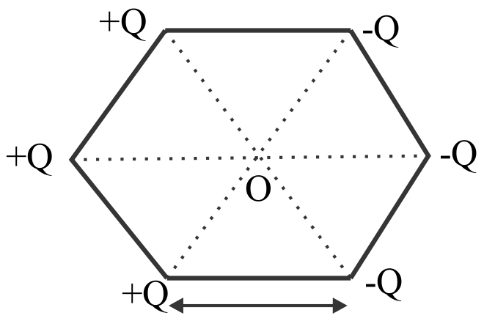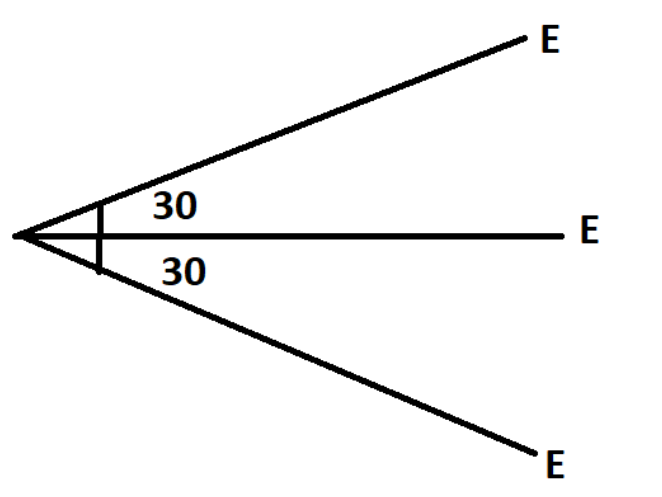Question
Question: Six charges are placed at the vertices of a rectangular hexagon as shown in the figure. The electric...
Six charges are placed at the vertices of a rectangular hexagon as shown in the figure. The electric field on the line passing through point o and perpendicular to the plane of the figure as a function of distance x from point o is (x>>a):

A. 0
B. πεox3Qa
C. πεox32Qa
D. πεox33Qa
Solution
From the above diagram we can say that this is a question of dipole moment. So firstly we will find the electric field due to the dipole in the axis of dipole and finally we get the resultant of all dipoles.
Electric field at the axis of dipole will be E=x3kp=2πεox3Qa
Complete step by step answer
As from the given figure we have 3 dipole of same unit and inclined as follows:

So now we have to find the resultant of all 3 dipoles
As we all know that other two dipoles are at a 600 in reference with third or middle dipole So resultant electric field will be Eresultant=2E
∴we have already discussed that the electric field a the axis of the dipole is E=x3kp=2πεox3Qa
So putting the value of E in the resultant equation of electric dipole
Eresultant=2×2πεox3Qa Eresultant=πεox3Qa
Therefore, option number C will be the correct answer.
Note: A pair of equal and opposite charges separated by a small distance is called an electric dipole. The dipole moment of an electric dipole is a vector whose magnitude is either charge times the separation between the two opposite charges and the direction is along the dipole axis from the negative to the positive charge.
